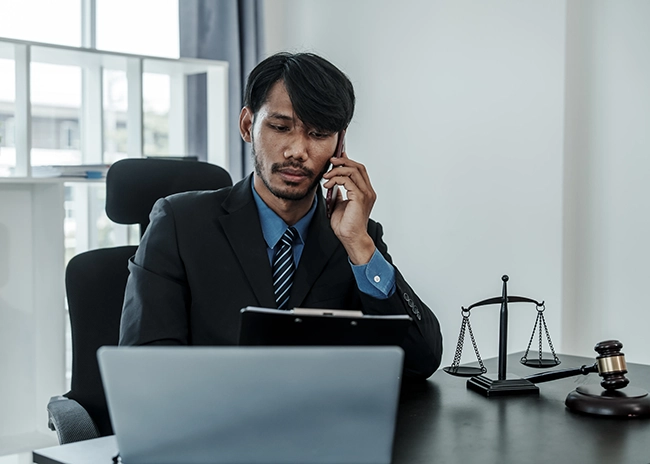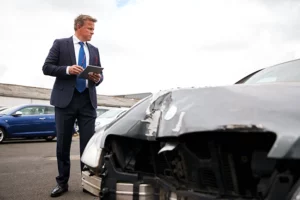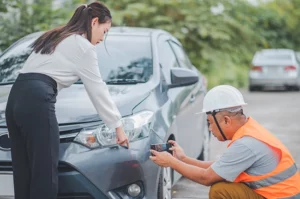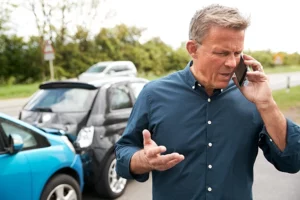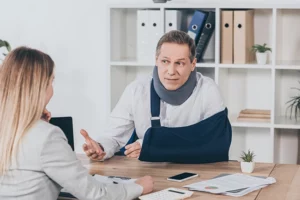
When you find yourself in an unfortunate circumstance on the streets, it’s crucial to know how to handle the situation with composure and efficiency. Ensuring your safety and the safety of others should be your top priority, along with taking the necessary actions to address the aftermath of the incident.
Dealing with a vehicular mishap can be a stressful experience, but being prepared and knowing what steps to take can alleviate some of the anxiety. Being proactive in managing the situation can help in the smooth resolution of any potential legal or insurance matters, as well as ensuring that you and others involved receive the necessary assistance.
By following a set of guidelines and being aware of your rights in such situations, you can navigate the aftermath of a roadway incident more effectively. Acting promptly and responsibly can make a significant difference in how you address the situation and protect your interests in the long run.
Hire a dedicated motor vehicle accident lawyer to advocate for your interests and secure fair compensation.
Immediate Actions to Follow Post-Collision

In the aftermath of a car incident, it is crucial to promptly undertake a series of vital actions to ensure your safety, record essential details, and protect your legal rights. By taking these immediate steps, you can safeguard yourself and begin the process of dealing with the repercussions of the accident.
1. Check for Injuries: The first priority after a collision is to assess the well-being of all individuals involved. Quickly check yourself and others for any injuries and seek medical attention if necessary. Your health and safety should always come first in such situations.
2. Contact Authorities: Notify the police and emergency services immediately following an accident. Law enforcement officials will document the incident, gather information from all parties involved, and create an official report. Cooperate fully with authorities and provide accurate details of the accident.
3. Exchange Information: Exchange contact and insurance information with the other driver(s) involved in the accident. Obtain their full name, address, phone number, license plate number, insurance company, and policy number. Additionally, collect contact details from any witnesses present at the scene.
4. Document the Scene: Take photographs of the accident scene, vehicle damage, road conditions, and any relevant signage or signals. Record the date, time, and location of the collision. These visual records can serve as valuable evidence for insurance claims and legal proceedings.
5. Notify Your Insurance Provider: Report the accident to your insurance company as soon as possible. Provide them with a detailed account of the incident and the information gathered at the scene. Follow their instructions regarding the claim process and any required documentation.
6. Seek Medical Evaluation: Even if you do not initially feel injured, it is advisable to undergo a medical evaluation after a car accident. Some injuries may manifest later on, and a timely assessment can ensure proper treatment and documentation of any medical issues resulting from the collision.
Ensuring Safety and Calling for Help
One of the most crucial things to do immediately after a road incident is to prioritize the protection of individuals involved and to reach out for assistance as quickly as possible.
| 1. | Secure the scene: | Make sure to move to a safe location if possible to avoid further danger. |
| 2. | Check for injuries: | Assess the well-being of all parties involved and seek medical attention if needed. |
| 3. | Contact emergency services: | Call 911 or the appropriate authorities to report the incident and request help. |
| 4: | Provide necessary information: | Be prepared to share details about the location, number of people involved, and the nature of the situation. |
Gathering Information and Documenting the Scene

When you find yourself in a situation where you have experienced an unexpected event involving a moving conveyance, it is crucial to gather as much data and record the surroundings for future reference. This process of collecting vital information and documenting the environment plays a critical role in assessing the circumstances and aiding in potential legal proceedings.
Collecting details such as names and contact information of parties involved, witnesses, insurance providers, and law enforcement officials can significantly impact the clarity of the incident report. Additionally, capturing photographic evidence of the scene, vehicle damages, road conditions, and any visible injuries can provide a visual record of the event.
It is also essential to gather documentation related to the accident, including police reports, medical records, insurance policies, and any correspondence with involved parties. These documents can serve as valuable evidence to support your account of the incident and facilitate a streamlined claims process.
Seeking Medical Attention and Legal Advice
After being involved in a collision on the road, it is crucial to prioritize your health and legal protection by seeking medical attention and consulting with a lawyer. This step is essential in ensuring that any injuries sustained are properly diagnosed and treated, as well as in understanding your rights and options moving forward.
Medical Attention: It is imperative to seek medical care promptly following a vehicular incident, even if you do not believe you have been seriously injured. Some injuries may not be immediately apparent, and a thorough medical evaluation can identify any underlying issues that require treatment. Delaying or refusing medical attention can not only worsen your condition but also complicate any potential insurance claims or legal proceedings.
Legal Advice: Consulting with a lawyer experienced in personal injury and motor vehicle accidents can provide you with valuable guidance on how to proceed. An attorney can help you navigate the legal process, protect your rights, and pursue compensation for any damages or losses incurred as a result of the accident. They can also assist in negotiating with insurance companies and representing you in court if necessary.
Question-answer:
What should I do immediately after a motor vehicle accident?
After a motor vehicle accident, the first thing you should do is check yourself and others involved for injuries. Then, move to a safe location if possible and call emergency services to report the accident.
Should I exchange information with the other parties involved in the accident?
Yes, it is important to exchange information with the other parties involved in the accident. This includes names, contact information, insurance details, and vehicle information.
Do I need to document the scene of the accident?
Yes, it is highly recommended to document the scene of the accident by taking photos of the vehicles involved, any damages, road conditions, and any other relevant details. This can be crucial for insurance claims and legal proceedings.
What should I do if I believe the accident was not my fault?
If you believe the accident was not your fault, it is still important to cooperate with the authorities and exchange information with the other parties involved. You can discuss the details with your insurance company and consider seeking legal advice to determine your options.
Is it necessary to seek medical attention after a motor vehicle accident?
It is highly recommended to seek medical attention after a motor vehicle accident, even if you do not initially feel injured. Some injuries may not be immediately apparent, and getting checked by a healthcare professional can ensure you receive the necessary treatment.

